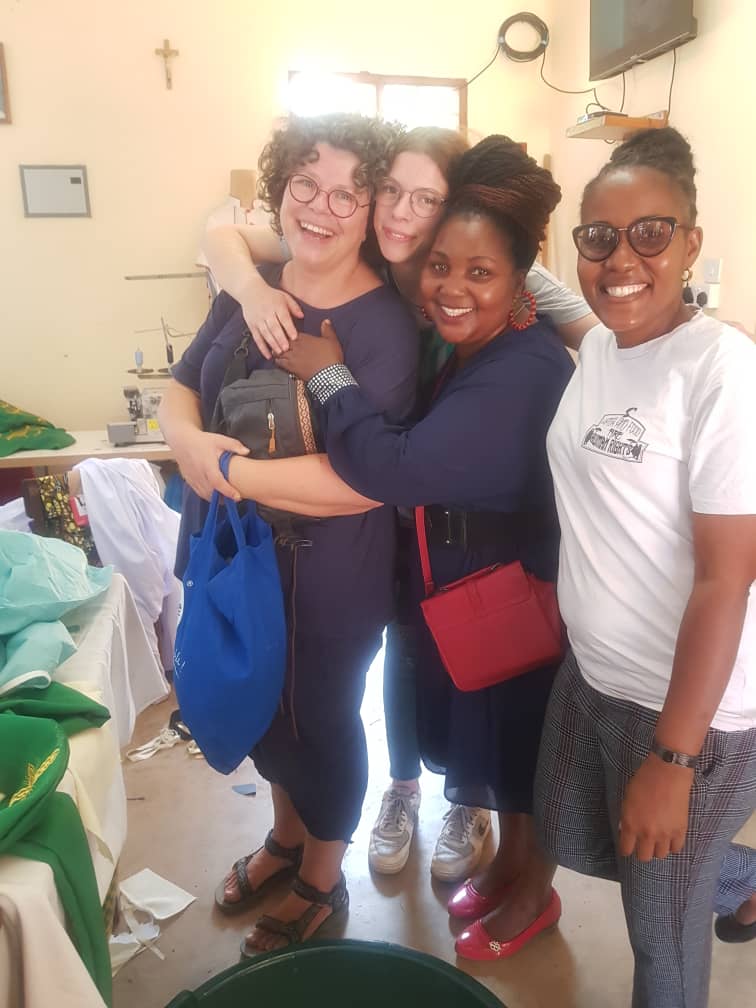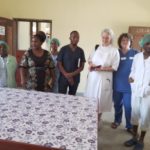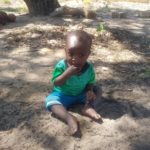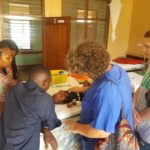Angelika Hartmann is a senior specialist nurse for hygiene at the Hospital zum Heiligen Geist in Kempen and has been a volunteer at Artemed Stiftung since 2014.
That is why it has been involved in the cooperation with the St. Walburg’s Hospital which the foundation has been supporting since 2017. Since then, Angelika has already been on site four times - the pandemic caused a break, as travel was prohibited during Corona. Help was still provided, as patterns and money were sent for fabrics for masks and later also FFP2 masks and protective clothing when these were developed here.
In order to be on site for the two weeks, she works one weekend a month in the intensive care unit at Kempen Hospital to make up for her absence with overtime. At St. Walburg's Hospital, the specialist nurse for hygiene does the same work as at the hospital in Kempen. After initially setting up a hygiene team there together with the nursing management, she is trying to find viable ways to implement the national guidelines of Tanzania. "We take one topic at a time, look at how things are currently going and where the problems lie," explains Angelika. "We often lack materials, such as disinfectants and dispensers, because the costs are simply too high. We then use a certain alcohol instead of disinfectant because it is cheaper locally and collect the dismantled dispensers in Germany." The defined standards for work processes from a hygiene perspective are set out in a hygiene plan, which is created and maintained in collaboration. "It's a lot about listening and understanding," says Angelika, describing her work on site. "It takes a long time to understand the background to people's behavior."
While she is in Germany, a Zoom conference is held once a month with the hygiene team. The diverse team communicates in English, but Angelika is also in the process of learning the national language, Swahili. Here at Kempen Hospital, she tries to keep the foundation present with her work - with fundraising campaigns, Christmas cookies for staff, jumble sales at the Kempen Christmas market, support for the Kempen Reading Talk, charity concerts in the former hospital chapel and much more. When Angelika talks about her work at the foundation, her eyes light up. The enthusiasm she feels for the country and its people is palpable and infectious. "Africa is contagious like a disease," Angelika enthuses. "You get a longing. And when I get there, I feel like I'm coming home to visit family". Of course, Angelika also experiences difficult situations there: "You don't want to hear about the worst experiences, they are human catastrophes. Violence and victims of violence that you wouldn't see here. Seeing people die, knowing that they would definitely have survived in our hospital - that's the worst thing for me. These are not old people, but children and young people. When asked what, on the other hand, is the best thing about her work in Tanzania, Angelika immediately says: "The people. Being together with people who are busy with elementary things. There are much more important issues there than here and yet I have never experienced a hospital where the atmosphere is as good as it is there.
The last visit to Tanzania was something special for Angelika: her 18-year-old daughter Miriam was also there to help. What Miriam experienced in Nyangao will be the subject of another report.






